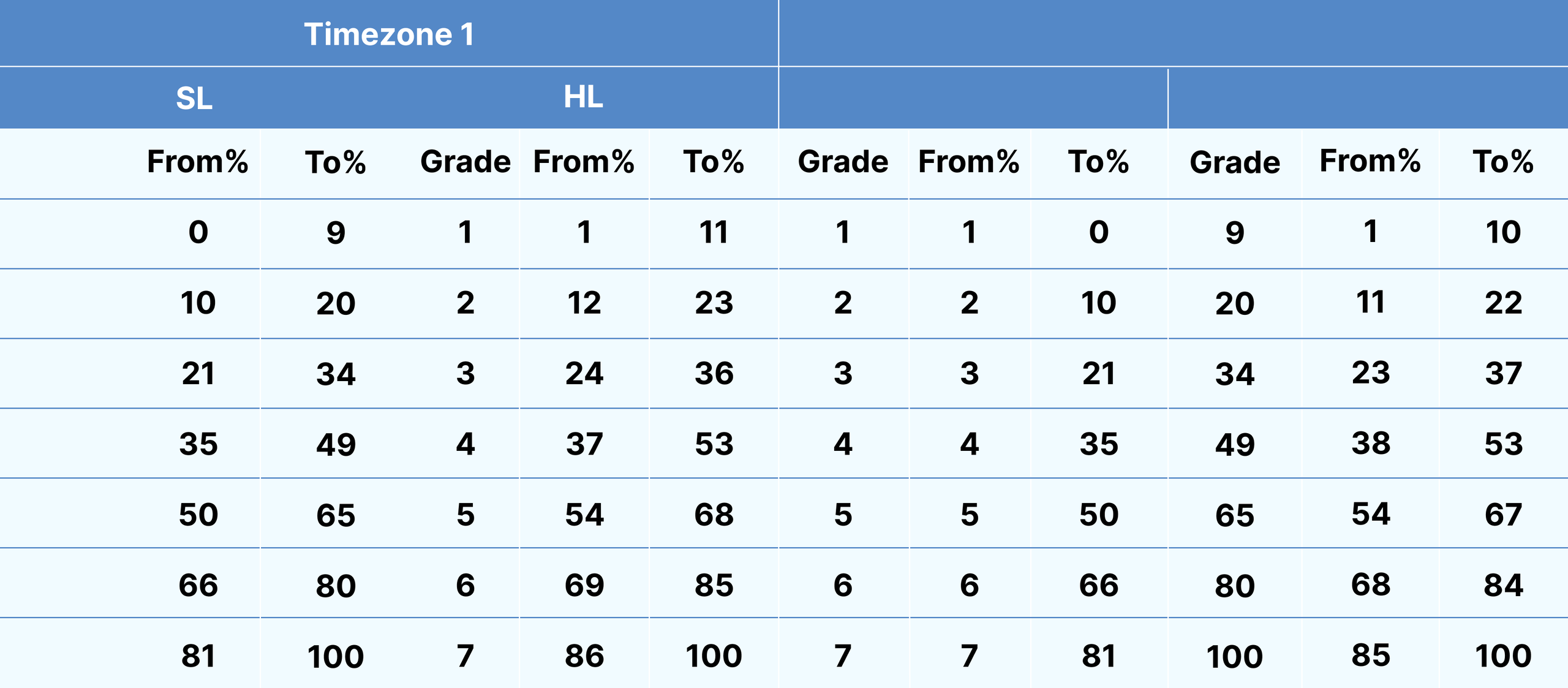A Complete Guide to IB German Language B

IB German Language B is one of the paths you can take within your IB programme to master a foreign language. This is a challenging subject designed for those who have prior experience learning German.
But why continue with this particular language and not switch to something else? Indeed, the IBO provides an opportunity to learn a different foreign language in high school from scratch. You may decide to study Ab Initio French, Spanish, or explore other options. However, there are undeniable benefits of transitioning to German B IB if you have already learned this language in middle school.
130 million people speak German as their mother tongue. Moreover, it is an official language in 6 countries. If you’re considering entering a university in one of these countries or would like to pursue a higher education in Linguistics, it makes sense to stick with German B.
In this post, our knowledgeable tutors, who are simultaneously IB German teachers and examiners, are going to provide information on everything you need to know about the course. Specifically, they’ll explain its syllabus and assessment structure, as well as provide some valuable learning tips.
What is IB German Language B?
Many students who start the IB programme already have a background in learning a foreign language. Language B is designed specifically for them. In other words, the course focuses on further development, honing, and expansion of linguistic skills, the acquisition of which started in middle school or earlier.
If you don’t have knowledge of German but would like to start learning the language in high school, you can do so with IB German Ab Initio (i.e. German for beginners).
It is also possible to opt for German B, instead of Ab Initio, even if you have no previous formal education. Those who studied the language on their own or visited language courses still have a chance to become candidates for Language B. However, you may need to prove that you know the basics of German equivalent to 2-3 years of middle school language acquisition program. The final decision is made by an IB coordinator in collaboration with a German teacher.
Overall, the German Language B is a 2-year course, which, along with linguistic function, focuses on the cultural aspect of the language.
All You Need to Know about IB German Language B SL/HL
Unlike German Ab Initio, which is available only at the Standard Level (SL), Language B is at your disposal at both Standard and High Levels. The difference between both options is in the depth, breadth, and rigour of education. Because HL is much more intense, it aims to provide a higher linguistic competence at the end of the course. As a result, its curriculum is more content-packed and assessment methods are more demanding.
IB German SL
With 150+ teaching hours, German B SL intends to develop comprehension of straightforward texts in various forms (spoken, written, recorded, etc.) on the topics you are likely to come across daily.
Besides nurturing core linguistic elements (i.e. listening, writing, reading, and speaking), it also contributes to improving interactive language skills. These are the ability to engage in a dialogue, understand and respond to questions, as well as display logical conclusions based on your language comprehension.
According to the IBO, a 7 in IB German corresponds to CEFR B2 proficiency. At the same time, 5 and 6 equal B1+ and 4 equates to B1. You need to consider these levels of language acquisition if you wish to study at a university in a German-speaking country.
IB German HL
In contrast, the HL Language B course has at least 240 hours of teaching hours. Its purpose is to provide a deeper understanding of the language and its grammatical structures, as well as help you improve your analytical skills.
In practice, it means that HL students are introduced to texts of greater complexity. They relate to both everyday topics and beyond. When working with these texts, students should be able to give replies in more detail, adjust them to various contexts, and learn how to argue their points of view.
In addition, the HL programme introduces excerpts from two literary texts in German. The same works will be further included in the Internal Assessment as part of the IB German exam.
At the end of the HL course, you can achieve a level of proficiency up to C1 on the CEFR scale. You will need to earn the highest grade though. At the same time, a 6 corresponds to B2+, 5 – B2, and 4 – B1+.
HL is much more demanding and material-rich. Hence, some students struggle to keep up with the pace of the course. Therefore, the IBO allows transferring from HL to SL after the first year of your IB diploma programme. Before switching to SL, however, we recommend working with your teacher and a German tutor to see where the root of your problems lies. It is always of great help to get a different perspective on the studying process to decide which level is right for you after all.
The other way around is also possible. You can upgrade from SL to HL after consulting with your teacher. However, you should be ready to double your effort and time to study at the High Level. In this case, a German tutor may also come in handy.
Book free trial with our certified IB German teachers today
100 % of tutors are certified teachers and examiners
How Can IB German Language B Improve Your Skills?
The primary purpose of IB language acquisition courses is to help students develop the ability to communicate in a foreign language. Along with that, they improve many skills that are beneficial for further educational and work opportunities.
In particular, IB German B contributes to the honing of the following communication skills:
- Speech competence, which consists of four components: speaking, listening, reading, and writing. Students get access to various educational materials in written, audio, visual, and audio-visual forms, as well as learn to produce texts independently. Along with this, HL introduces authentic literary works in German;
- Linguistic competence, which involves phonetics, spelling, lexis, and grammar. Various themes and topics of the syllabus provide an opportunity to expand vocabulary, including idioms and proverbs, and learn new grammatical structures. In other words, IB German shows a multitude of ways how you can express your thoughts and ideas;
- Socio-cultural competence – the course is designed to help students understand the culture, traditions, and peculiarities of German-speaking communities. Apart from that, it facilitates intercultural communication and international-mindedness – both are indispensable if you’d like to study or work abroad;
- Educational and cognitive competence implies the development of critical thinking, analyses, and independent research. At HL, for example, students read and analyse literary texts, and this exercise requires them to put all of their educational skills to use. Besides, the course’s assignments encourage an active application of independent study.
Themes of the IB German Syllabus
According to the Language B syllabus, the course introduces 5 prescribed themes. They cover communication about personal interests, as well as matters and issues on local, national, and global scales. Learning these themes makes it possible to compare German with students’ mother tongue and other languages they know.
Furthermore, each theme consists of several topics. They help process the material in a more convenient and in-depth way. These are not prescribed but rather recommended, i.e. each school is free to choose topics they see fit.
Overall, these are the following prescribed themes and possible topics:
- Identities – this theme focuses on human nature and the ways we use to express ourselves. The recommended topics are:
- Personal attributes;
- Personal relationships;
- Eating and drinking;
- Physical well-being.
- Identities – it explores events and experiences that shape our identity and consists of:
- Daily routine;
- Leisure;
- Holidays;
- Festivals and celebrations.
- Human ingenuity. The theme delves into innovations and technology as well as their ability to transform our lives:
- Transport;
- Entertainment;
- Media;
- Technology.
- Social organisation. The theme considers social groups, factors that lead to their formation, and how they interact with each other:
- Neighbourhood;
- Education;
- The workplace;
- Social issues.
- Sharing the planet. Students will get to know the issues and opportunities of sharing the Earth:
- Climate;
- Physical geography;
- The environment;
- Global issues.
What is the Assessment Structure for IB German B?
The IB German Language course culminates in an extensive final examination, which is divided into External and Internal Assessments.
German B IB External Examination
When it comes to External Assessment, it consists of Paper 1, which assesses productive skills (writing), and Paper 2, which tests receptive skills (listening and reading).
German B SL Paper 1SL lasts 1 hour 15 minutes. Students need to produce a 250-400-word text based on one of the questions out of the selection of 3. At HL, a written text must be longer – 450-600 words – and there will be 1 hour 30 minutes to produce it. Regardless of the level, this assignment carries 30 points.
To manage time effectively, we suggest preparing in advance key points related to the IB German syllabus themes. After all, all the Paper 1 questions will concern the material covered during the course.
To complete the second part of the external assessment, Paper 2, students have 1 hour 45 minutes at SL and 2 hours at HL. The assessment includes a listening component bringing up to 25 marks and reading comprehension, providing a maximum of 40 marks regardless of the level. Overall, Paper 2 weighs 50% of the final result.
During this stage of the examination, students listen to three audio recordings and respond to subsequent questions. The reading component includes various text types (such as e-mails, ads, diary entries, forum entries, blog posts, etc.) and following comprehension questions. These questions typically require concise responses, including multiple-choice selections, true/false statements, and gap-filling exercises.
Although Paper 2 has a similar structure for both levels, HL students should anticipate more complex and lengthier audio and written materials.
Internal Assessment
The Internal Assessment is essentially an Individual oral examination based on a selected stimulus. With its 25 marks, it accounts for 25% of the final grade.
IB German B SL Internal Assessment
SL students receive two visual stimuli (images related to course content) and prepare their presentation using one of them. They have 15 minutes to write down their key discussion points. The exam itself has three distinct stages:
- First of all, students deliver a 3-4 minute presentation about the image, where they describe such elements as context, people, their activities, background, etc.
- Next comes a 4-5 minute discussion with the examiner. Examiners might request elaboration on specific points, seek opinions about the depicted situation, or ask about your personal experiences.
- The assessment concludes with a general discussion. During these 5-6 minutes, SL students and their examiners talk about other themes covered in the IB German syllabus.
IB German B HL Internal Assessment
Instead of images, HL students work with a text extract from one of two literary works they studied during the course. After selecting which extract they’d like to work with, they receive approximately 20 minutes for preparation.
“I always tell my students to create up to 10 clear bullet points with keywords – not full sentences. They should be signposts for your presentation, not a script. Feel free to refer to your outline but don’t just read it. Otherwise, you won’t be able to naturally engage with the examiner and maintain a more authentic and spontaneous speaking. I’ve seen too many students waste their preparation time writing out every word, only to struggle when it was time to present their ideas.”
Like SL, the Individual Oral begins with a 3-4 minute presentation that summarises the chosen extract. In addition to this, it makes sense to incorporate brief information about the complete literary work, including its character, general plot, and thematic elements. Personal interpretations and viewpoints are also welcome.
As soon as you present your final point, a 4-5 minute discussion takes place. Here, examiners are likely to ask you to expand on your ideas, provide clarification, share your experiences, etc. In your responses, ensure to demonstrate an understanding of German-speaking cultures.

The assessment concludes with a broader discussion beyond the literary works, while still remaining within course themes. You might have to discuss the personal impacts of certain events, significant experiences, or cultural aspects that you find fascinating. This final IA section lasts 5-6 minutes.
Assessment Criteria
When assessing your knowledge, examiners take into account three main criteria. For the most part, they are the same for Paper 1 (writing skills) and Internal Assessment (speaking):
- Language (12 marks)
It evaluates how effectively you can use German in communication. To maximise your score, you need to make sure you excel in the following areas:
- You accurately use vocabulary and idiomatic expressions;
- Understand and correctly apply varied grammar;
- Properly use formal/informal language;
- In the oral examination, it is also important to have clear pronunciation and natural fluency.
- Message (12 marks)
With this criterion, examiners assess the clarity and coherence of communication. They look for:
- Logical organisation of ideas;
- Well-developed arguments;
- Relevant supporting details and examples;
- Clear progression of thoughts;
- Cohesive devices and transitions.
- Conceptual Understanding (Paper 1) / Communication (IA) (6 marks)
It assesses how well you understand an assignment and whether you are able to respond to it appropriately. In particular, you need to:
- Use suitable text type (spoken and written alike) and register;
- Take into account context, as well as your audience and purpose;
- Incorporate conventions of the text type;
- In oral examination, it is also assessed how well you maintain a conversation and engage with an examiner.
IB German B Grade Boundaries
The final German B IB assessment brings a maximum of 125 marks: 30 marks for Paper 1, 25 marks for Paper 2 Listening, 40 marks for Paper 2 Reading, and 30 marks for Internal Assessment. Clearly, if you are able to get all the possible marks, a 7 as your final grade will be in your pocket.
However, it is not necessary to secure every single mark to achieve the maximum. Grade boundaries determine your final result based on your cumulative performance across four areas of assessment. These grade boundaries slightly vary every year since they take into account the marks of all students who sat exams in a particular session. That being said, you can use the following boundaries (for the 2024 May examination) as guidance:

According to the table, to receive a 7 at SL, it should suffice to earn at least 81% of marks – 101. At HL, the bar is a bit higher – 85-86% equals 106-107 marks.
How to Prepare for IB German B?
Choosing German as your IB foreign language option opens up exciting opportunities in further education and career. If you have an ambitious goal to earn a high grade, just occasional studying won’t be enough. Remember, success in this demanding course requires dedicated effort across both years, not last-minute cramming.
Learning a foreign language is like building a house – you need a solid foundation before adding the next level. Each topic builds upon the previous one. Therefore, it is vital to take time to understand the most important grammatical and lexical aspects before advancing.
Your task as a student is to try and create a systematic learning routine that includes vocabulary building, grammar practice, and real-world application. When you encounter new words or grammatical structures, don’t simply add them to your notebook. Instead, challenge yourself to use them in conversations, writing exercises, and daily practice.
“One of the most effective strategies is immersing yourself in authentic German content. By regularly engaging with German media – whether it’s news broadcasts, YouTube channels, or podcasts – you’ll naturally absorb the language patterns and cultural nuances of German-speaking countries. From my experience as an IB teacher and tutor, students who allocate at least 30 minutes a day to authentic German content have higher chances of getting a high grade on their exams.”
Finally, it is extremely useful to sit mock exams and practice with past papers throughout the course. They serve a dual purpose: you have a chance to familiarise yourself with exam formats and simultaneously strengthen your core language skills. For speaking practice, consider recording yourself or partnering with a classmate. This approach helps build your confidence, which will not go amiss when you head to your final assessment.
The Best Additional Resources for IB German B Preparation
Students often wonder which resources, besides their textbooks, they can use, to make the most of their German-learning journey. Because we hear this question all the time, we’ve curated a selection of high-quality apps, online and printed resources:
- Specifically designed for IB German B, Deutsch im Einsatz covers all themes of the syllabus with exam-style tasks;
- Duolingo– free gamified language app ideal for daily 5-minute vocabulary building and practice sessions;
- Memrise uses spaced repetition for vocabulary learning. It is especially useful for remembering common German phrases and expressions;
- Quizlet allow you to create personalised flashcard sets for targeted vocabulary learning;
- Babbel is a subscription-based app with structured lessons, which focuses on practical conversations and proper pronunciation;
- Deutsche Welle is Germany’s international broadcaster that offers free German courses for all levels. Their “Nicos Weg” series is particularly good for listening and contextual practice.
- Easy German – this YouTube channel is perfect for understanding real-world German. Here you can find street interviews and natural conversations with German subtitles;
- Deutsch für Euch is grammar explanations and cultural topics explained in a fun way;
- Learn German with Anja features short lessons with a focus on practical vocabulary and common expressions.
German Language B Learning Success
We are sure you pull out all the stops to succeed in German Language B. However, sometimes even the most diligent students need a helping hand. If you require additional support, our German tutors are just a click away.
One of the benefits of a tutor is a fresh outlook on how you learn a foreign language. They can make your studying or revision process much more effective. Along with this, our IB teachers and Examiners are able to show how to get the best marks possible in your Internal Assessment.
No matter which area of language acquisition you’re struggling with, our tutors will be happy to offer an approach catering to your individual needs.
Would you like to give our tutors a try? Then don’t hesitate to contact us at 022 731 8148 and .
By Sara Lloyd
Sara has been an education consultant for TutorsPlus for 15 years, and is an expert on international IB education. She is also a parent of two lively children.















